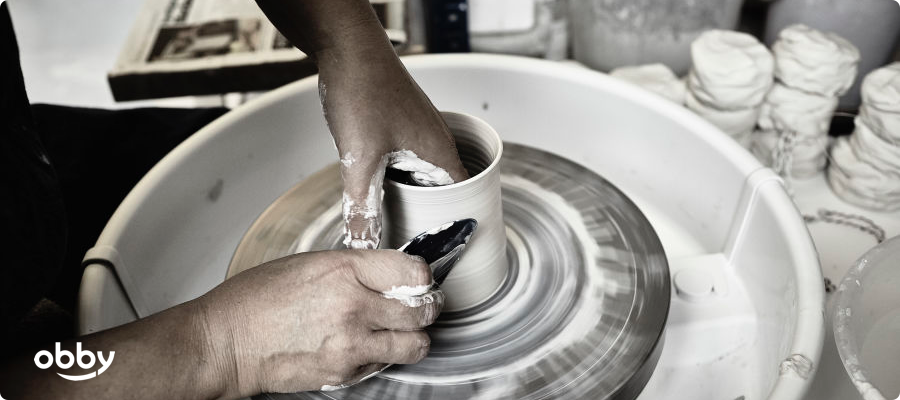You may have heard of pottery as a craft or art form, and you may even have heard of wheel throwing.
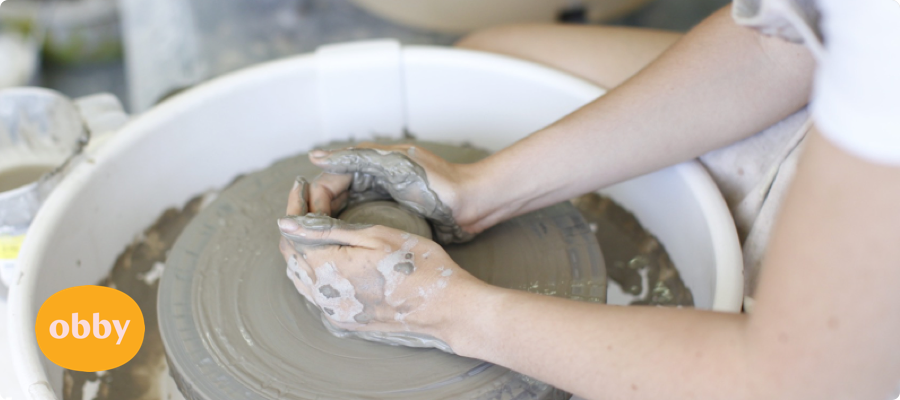
In this pottery throwing guide, we discuss all things wheel throwing to help you better understand this fun, relaxing and hypnotic activity.
Obby has helped thousands of students find the right class for them! Find the best pottery classes in the UK and learn how to make your own pottery with the guidance of a professional!
Book now on ObbyPottery Throwing guide:
- What is Wheel Throwing?
- What is the History of the Potters Wheel?
- How Much is a Potters Wheel?
- Where can I Learn How to use a Pottery Wheel?
- Where can I practice Wheel Throwing
1. What is Wheel Throwing?
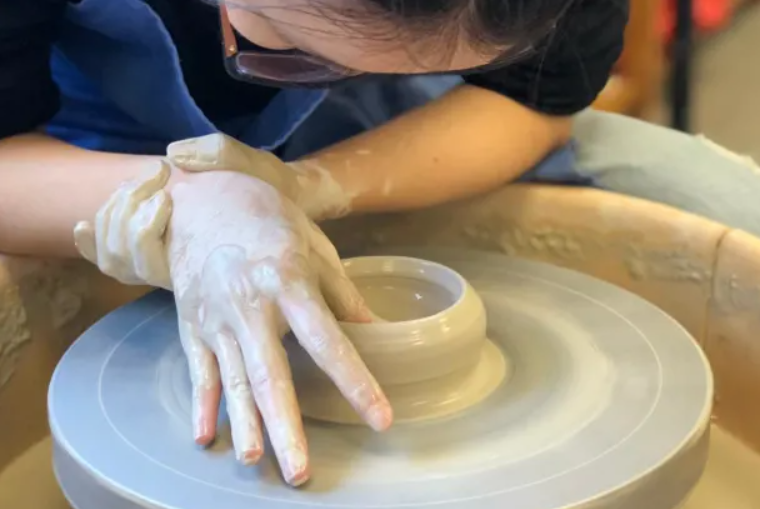
Wheel throwing is the technique of shaping round ceramics using a potters wheel. The 'throwing' is the shaping part. The wheels turns constantly, either triggered by a foot or motor, meaning the clay and the pot rotates so you can mould it into your desired shape with your two hands. The wheel is also used in the process of trimming and adding decorations or different rings of colour. This is done in conjunction with special potters tools. Sometimes people refer to the potter's wheel as a "potters lathe" as well.
Basically wheel throwing is the image you think of when you picture 'pottery'. It's exactly what Patrick Swayze and Demi Moore get up to in Ghost, just it's not always so god damn romantic, but always just as great! There are various different techniques to wheel throwing.
Jiggering is used an extension of the potters wheel during wheel throwing. In jiggering, a shaped tool is slowly brought down onto the plastic clay body that has been placed on top of the rotating plaster mould. The jigger tool shapes one face, the mould the other. The term is specific to the shaping of flat ware, such as plates, whilst a similar technique, jolleying, refers to the production of hollow ware, such as cups. These pottery throwing guide for jiggering and jolleying can tell you more.
If you would like to explore the history of the potter's wheel as well as fascinating wheel throwing techniques, then why not join a wheel throwing class?
Down to Earth with KC host interactive and rewarding wheel throwing workshops. Not only will you master wheel throwing techniques, but within their workshops students will also have the opportunity to learn about the therapeutic process of creating pottery.
Book now on Obby2. What is the history of the potter's wheel?
Much of the early ceramic work was using hand building techniques. The wheel came about around 4500 BC in areas around Turkey and Egypt. These early wheels were turned by hand or foot while coiling a pot. This form of slow wheel was used very little - it was not until the discovery of fly wheel principle that the fast wheel in the late 3rd millennium BC was used.
With potters being able to create many more pots per hour, the use of the fast wheel was a step towards industrialisation. Much further forward in time, the motor-driven wheel has become popular with craft potters and educational institutions, although human powered wheels are still favoured by many studio potters.
3. How much is a potter's wheel?
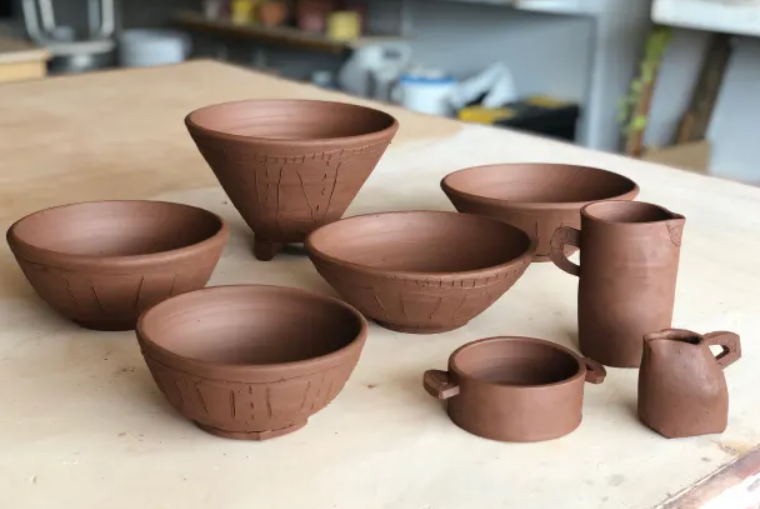
This pottery throwing guide wouldn't be complete without discussing the cost of such a vocation. A potters wheel is expensive, they start at £650 and can be as expensive as £2,000. They stool you need for them come in at £100 each and the wheel heads are around £300 so they are a substantial investment. However, the clay itself is ridiculously cheap! There are tons of different brands of pottery wheels, so it's best to go to a few classes first, get a feel for which one you like before purchasing your own straight away.
4. Where can I learn how to use a pottery wheel?
Pottery Wheel Throwing classes have become very popular in the last few years, with the resurgence of creativity and mindful activities. Often inspired by the romantic sensibilities of the film Ghost (as mentioned above), many people have turned to clay, and the wheel, to get back in touch with their creative side and spend time away from their desks, the pub etc. It can be difficult to narrow down the best classes to attend, but there are great websites like Obby that make this easy for our pottery throwing guide.
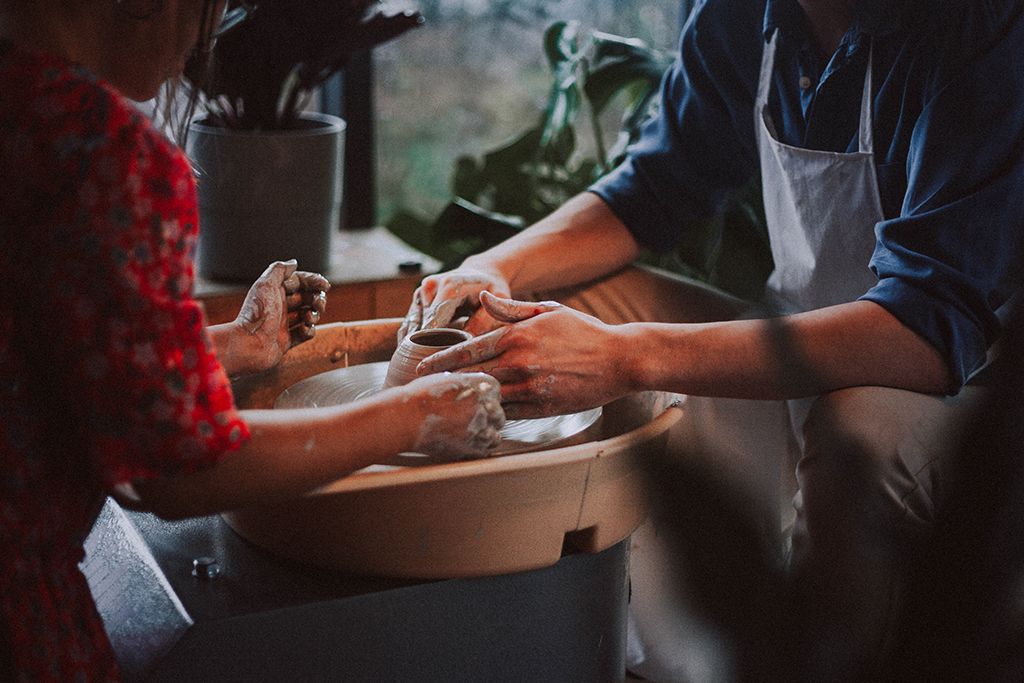
If you've always dreamed of recreating the famous scene from Ghost, then why not book a pottery workshop for your next date night?
The Slightly Curious Studio host a romantic pottery date night class where beginners can discover their passion for clay with their other half! Couples and singles with any ability are welcome in this workshop where they will have the chance to master wheel throwing.
Book now on Obby5. Where can I practice wheel throwing?
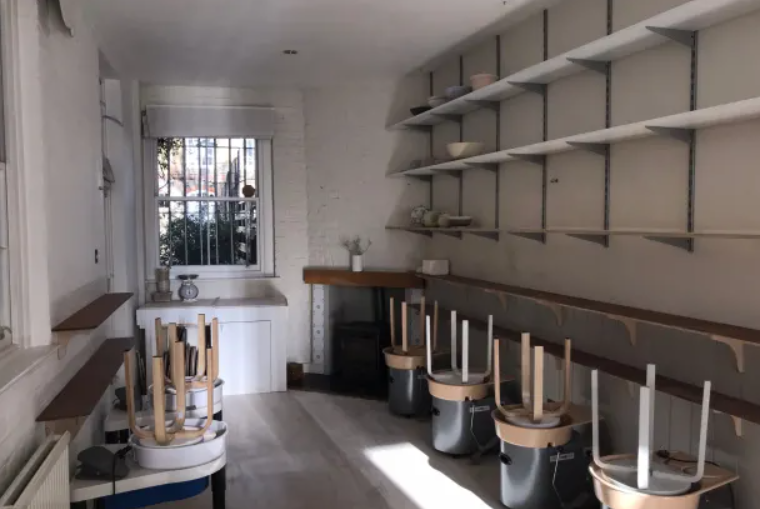
There are loads of places where you can rent studios and wheels once you are comfortable using them yourself. Studios such as Kerry Hastings Ceramics at Regent Studios in Finsbury Park also offer an open access membership for those with experience of pottery. Use of potter's wheels, kilns, workspace & shelves for storage are included in the membership.
Sak Beh Pottery in Hackney is a great place to learn and practice your wheel throwing skills. With classes for beginners, and more intensive classes available, you can discover and hone your skill in this airy and open studio space.
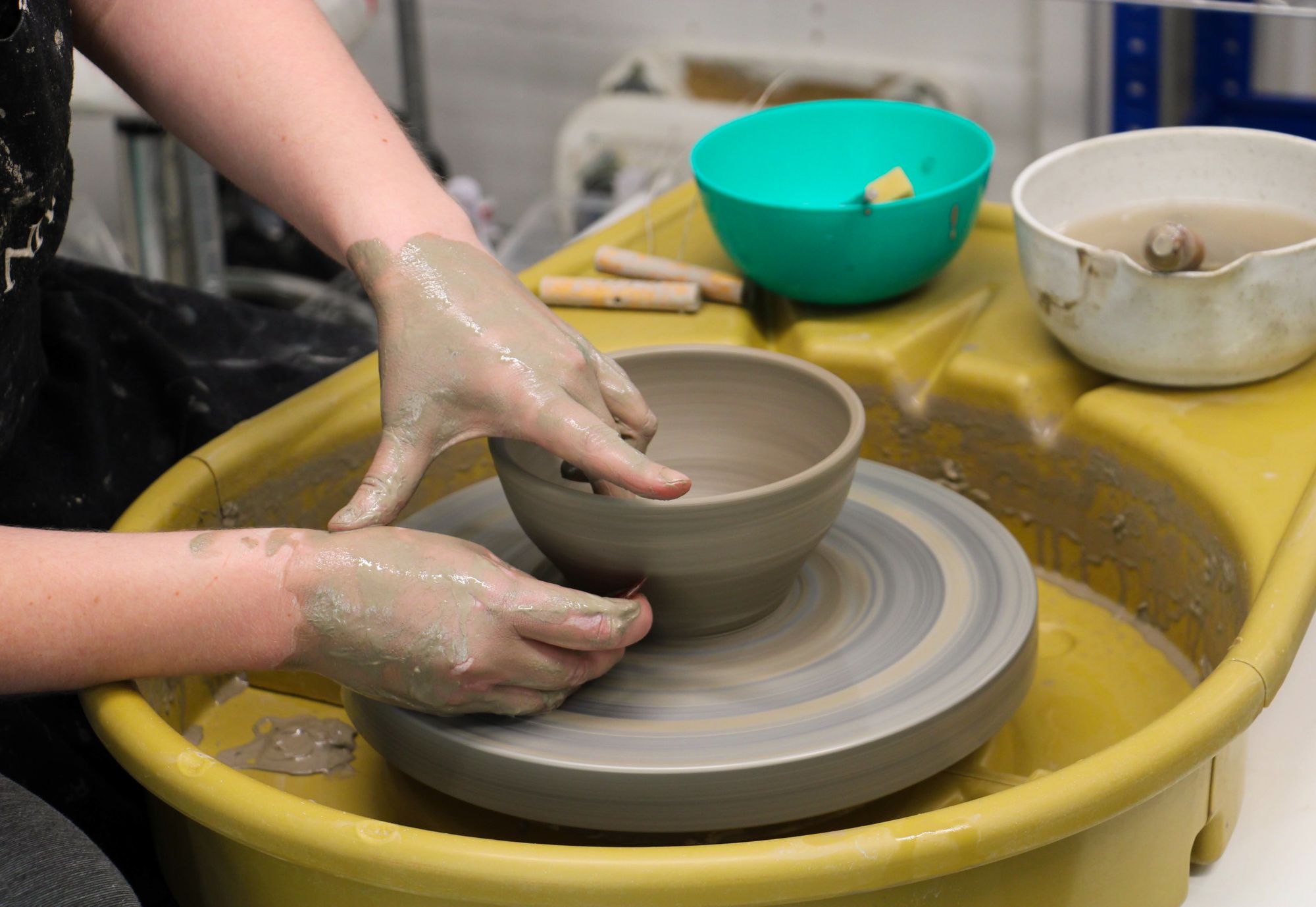
Although most wheel throwing classes take place in North and East London, like classes with Cernamic, the Slightly Curios Studio and Sak Beh Pottery. There are also classes available in Central and South, like Odile Cadiot Ceramics and Workshop 305.
All of these pottery schools cater to beginners. They also have courses to carry you through to firing and glazing your pieces (the full journey of pottery creation!), as well as long-term courses to give you weeks of practice on the wheel - and some hand building techniques for some extra measure too!
Book now on ObbyNeed more advice?
Whether you're looking to learn more about the history of pottery wheels, or want to learn how to use them, our pottery throwing guide will certainly help you to get a little closer to your goal.
Obby is a teaching platform where teaches all around the UK can create, manage and sell their classes, courses and workshops online. As a student, you can visit Obby to browse and book thousands of classes from any one of Obby's talented teachers.

